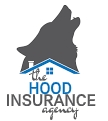Running a small business comes with risks, and having the right business insurance is essential for protecting your company from financial losses. Many small business owners have questions about business insurance requirements, costs, and coverage options. Below, we answer some of the most commonly searched questions related to small business insurance and emphasize the importance of working with an experienced insurance agency to get the best coverage at the best price.
The Most Common Small Business Insurance Questions Answered
1. What Types of Insurance Does My Small Business Need?
The type of insurance you need depends on your industry, business size, and specific risks. The most common business insurance policies include:
- General Liability Insurance – Covers bodily injury, property damage, and legal expenses.
- Professional Liability Insurance – Protects against claims of errors, negligence, or malpractice.
- Commercial Property Insurance – Covers damage to business property, including buildings and equipment.
- Workers’ Compensation Insurance – Required in most states, it covers employee injuries and lost wages.
- Business Owner’s Policy (BOP) – A bundled policy that includes general liability and commercial property insurance.
Working with an experienced insurance agency ensures that you choose the right policies for your specific business needs, avoiding gaps in coverage that could leave you vulnerable. Additionally, an agency will shop on your behalf, comparing multiple insurance providers to find the best coverage at the most competitive rates.
2. Is Business Insurance Required By Law?
Some types of insurance, like workers’ compensation, are legally required for businesses with employees. Other policies, such as general liability insurance, may be necessary if your business contracts with clients or landlords who require coverage. State and industry-specific requirements vary, so consulting with a knowledgeable business insurance agency helps ensure compliance and avoids potential legal issues.
3. How Are Insurance Premiums Calculated?
Insurance premiums are based on several factors, including:
- Industry risk level
- Business size and revenue
- Number of employees
- Claims history
- Location of the business
To lower premiums, businesses can implement risk management strategies such as workplace safety programs and security systems. An experienced insurance agency can help identify ways to reduce costs while maintaining the right level of coverage. By shopping among multiple carriers, they can also secure the most cost-effective policy tailored to your business needs.
4. What is a Business Owner’s Policy (BOP)?
A BOP is a cost-effective way for small businesses to get essential coverage. It combines general liability insurance and commercial property insurance, offering protection against common risks like lawsuits and property damage. Consulting with an insurance expert can help determine if a BOP is the best option for your business. Your insurance agency will also compare BOP options from various providers to ensure you get the best deal.
5. Are There Exclusions In My Insurance Policy?
Yes, business insurance policies typically have exclusions. Common exclusions include:
- Intentional acts or fraud
- Employee injuries (covered under workers’ compensation)
- Flood or earthquake damage (requires separate coverage)
This is why it’s crucial to work with an experienced insurance agency to thoroughly review your policy and understand what is and isn’t covered. A knowledgeable agency will ensure you’re not left with unexpected coverage gaps and help you find supplemental policies if needed.
6. Is Business Insurance Tax-Deductible?
Yes, most business insurance premiums are considered necessary business expenses and are tax-deductible. However, some exclusions apply, so consulting with a tax professional is recommended.
7. How Can I Save Money on Business Insurance?
To reduce insurance costs, consider:
- Bundling policies – A BOP often costs less than purchasing separate policies.
- Increasing your deductible – Higher deductibles can lower premium costs.
- Maintaining a safe work environment – Reducing risks can help lower insurance claims and costs.
An experienced insurance agency will do the shopping for you, comparing policies from multiple providers to ensure you get the best value without sacrificing coverage. Instead of spending hours researching options yourself, an agency streamlines the process and finds the right coverage at the right price, saving you time and money.
Final Thoughts
Choosing the right business insurance is crucial for protecting your company’s financial future. By understanding your coverage options, legal requirements, and ways to save, you can ensure your business is well-protected against potential risks. However, navigating business insurance
can be complex, which is why working with a knowledgeable business insurance agency is the best way to secure tailored coverage.
An experienced agency will not only provide expert guidance but will also shop multiple carriers on your behalf, securing the best policies at the most competitive rates. This saves you time, effort, and money while ensuring your business is properly protected.

